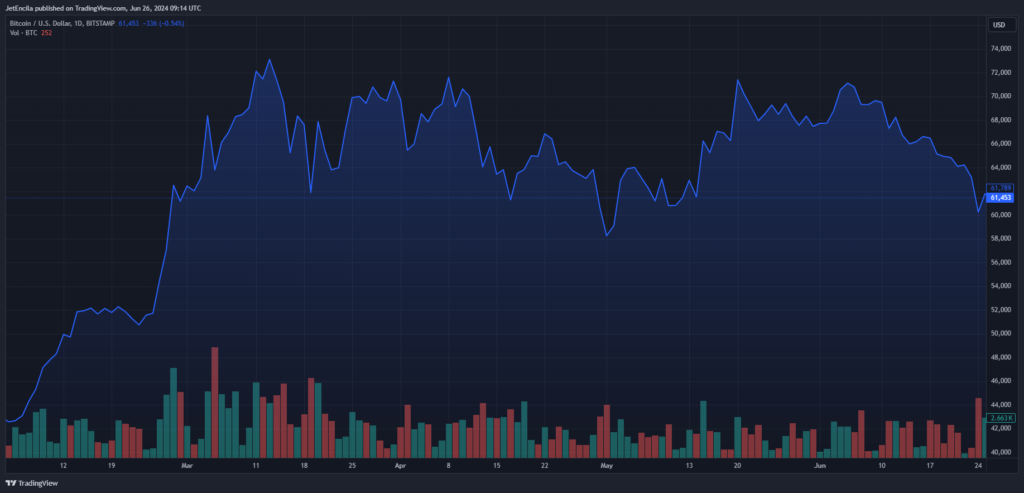Congressman Matt Gaetz proposes a bill to accept Bitcoin for federal income tax payments, aiming to enhance tax efficiency and U.S. tech leadership.
Congressman Matt Gaetz of Florida has started a new discussion about the relationship between cryptocurrencies and conventional banking. Gaetz submitted a bill this week that would accept Bitcoin (BTC) as payment for federal income taxes in the US. The idea seeks to take the country into a new age of technical leadership and tax efficiency.
Is Bitcoin Able to Pay America’s Taxes?
Republican Gaetz, a strong supporter of cryptocurrencies, believes that Bitcoin will lead to a simpler tax code. According to him, including Bitcoin encourages creativity and puts the US at the forefront of technological development.

Experts advise against a hurried embrace, though. The procedure of paying taxes may become significantly more unclear due to the well-known price volatility of bitcoin. For example, you may owe $10,000 in taxes now, but the amount may have changed significantly by the time your Bitcoin transaction settles. Due to this instability, the Internal Revenue Service (IRS) and taxpayers may need help with issues.
Difficulties Apart From Volatility
Another big worry is security. Despite having a decentralized and transparent ledger, cryptocurrency transactions are vulnerable to hacks. Malicious parties could use vulnerabilities to thwart tax payments or even steal money.

Strong security measures should be implemented so that the IRS can manage significant Bitcoin transactions. Furthermore, it’s possible that the existing infrastructure isn’t prepared for such a significant change. Integrating Bitcoin into the current tax filing system would require substantial investment and development to ensure efficient processing and record-keeping.
Cryptocurrency Regulation: Alternatives to Stablecoins
Despite its challenges, Gaetz’s plan is a timely reminder of the changing financial landscape. Governments worldwide are trying to figure out how to integrate and regulate cryptocurrency, which is here to stay. The Financial Innovation and Technology for the 21st Century Act (FIT 21), which was recently passed, attempts to provide a more defined legal framework for cryptocurrencies in the United States.
This would give businesses and consumers the much-needed certainty and stability. Legislators are also looking into the possibilities of stablecoins, cryptocurrencies linked to the value of conventional assets like the US dollar. Stablecoins provide the advantages of cryptocurrency transactions—like quicker settlement times and maybe lower fees—without the volatility of Bitcoin’s price.
El Salvador’s Audacious Trial: A Work-in-Progress Case Study
El Salvador is one country that has embraced Bitcoin to a great extent. El Salvador became the first nation in the world to accept Bitcoin as legal money in 2021. Although there has been support and opposition to the move, it is a practical trial that the US might consider.
